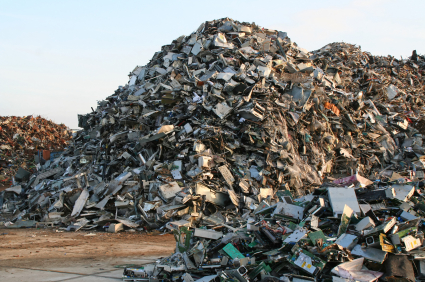A simple question sometimes opens unexpected complications. In this case, what counts for the garbage of the internet?
(tl;dr: It can be tempting to swerve into digressions here about wastes of time or wastes of attention a la cat videos. Sorry – instead, this post focuses instead on the production, distribution, circulation, use and deprecation of those media artifacts, their platforms, and the machines on which we view them.)
One way to approach the question is to ask how we measure the energy efficiency of the internet. The factors that influence that measurement include the rate of electricity consumed by mobile devices and their chargers, personal computers, modems and routers, servers, and data centers. Most significantly, the energy required to cool those machines can stagger the mind. A proper study of this use must also account for the amount of energy invested in the production of the same machines. Efficient consumption of resources serves the interests of the largest discrete consumers and of the utility providers who make the resources available to aggregate consumers, but without discriminating between economic and ecological criteria. For example, GreenPeace’s recent “Dirty Data” report, which embroiled Facebook and other companies in P.R. and legal battles, argues that large IT firms, especially data centers, continue to consume energy in 19th- and 20th- century industrial factory patterns, rather than embracing “clean” energy as wholeheartedly as efficiency. While new facilities constructed over the past few years by Apple, Google, Amazon, and Microsoft certainly deserve their accolades for efficient design. Efficiency, however, only provides one lens onto the original question of garbage or waste. Continue reading

